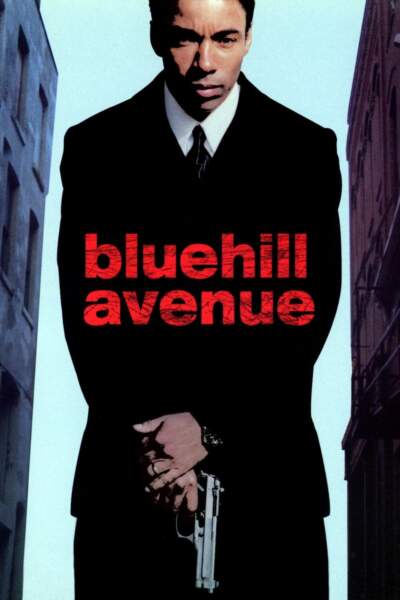Advertisement
Set in Boston
How 'Blue Hill Avenue' claimed a place for Black Bostonians in crime dramas
Resume"Blue Hill Avenue," a 2001 crime drama that claimed space for Black Bostonians in film, ran into struggles during both creation and distribution.
However, despite not having a distributor and no large-scale release, the film gradually became a hit via cable television, video purchases and rentals. Ultimately, BET ranked "Blue Hill Avenue" in its list of top 20 Black gangster movies.
Film critics Kyéra Sterling and Ally Johnson joined Radio Boston to talk about "Blue Hill Avenue."
Interview Highlights
On different interpretations of this film:
Sterling: "I think this film is about a middle class Black guy growing up in Roxbury who — because of his loyalty to his friends — gets into the drug dealing business. But I really think about it as a sort of intra-racial consideration about what the cost of drug dealing was. I think there's a really big moral quandary that the protagonist, a.k.a. Allen Payne/Tristan throughout the movie is reckoning with. And I was happy to hear you say noir-ish because I think in that way it's really trafficking in the noir conventions and thinking about what criminality means and why does someone go down this life path.
Johnson: "Yes, it's about the four friends and it's about how they kind of find themselves in this criminal lifestyle. But I think by the end, it was making me think a lot about how it's about masculinity, toxic masculinity, and the idea that they do it because they're putting up a front because they were asked to grow older at a much younger age because of their situations.
"And it's seeing them have to face the fact that their lives kind of ran out of control and that they're kind of scrambling to have that control still by the end... It's the line Tristan has about how he did it because he was good at it that I think means a lot to the overall story that sometimes it doesn't need to be more than that, sometimes it's just, 'I just was good at it and it helped me survive.' "
On the stereotypes within the film:

Sterling: "I think about it in the context of Blaxploitation cinema writ large, right? So Blaxploitation most generally refers to a cadre of cinema, mostly in the 1970s, where you're trafficking in stereotypical depictions of Blackness. And in those depictions you're sometimes getting it right and you're sometimes getting it wrong.
"But I think what's important is that it's about not presenting monolithic notions of Blackness. And so, at the same time, you have to reckon with the fact that these are experiences that are valid and this is reality, right? And like, this film in some ways is trafficking in a social realism that is real. The problem becomes when we allow this to represent Blackness holistically, and that's not the case, right? So I think we have to hold that space for both/and."
On the difference of African American film noir:
Sterling: "It's about especially the intergenerational component. It's about the reasons why this is a mode of survival. And I think that intergenerational aspect speaks to the ways that elders recognize the necessity of these circumstances, the social circumstances that drive young kids to dealing drugs and being in the streets, right? That's a very real thing.
"And like this film is written by Craig Ross, who wrote a story about stories he had heard growing up in Malden, right? The city, in Roxbury specifically, was embroiled in a drug war. So this is a very real thing for the Boston community. So I think that this is why there is a level of moral questioning, something that you see like in Spike Lee's 'Do The Right Thing' that is kind of mirrored here, and there is something that is a little more tortured and soulful about it that's probably not present in 'The Town' because of that."
On the legacy of "Blue Hill Avenue":
Johnson: "I think it's like what we talked about with some of the other films about why do we always see the same story set in Boston? And in this case, I think more than anything, it may be just opened a small doorway for more artists to come out and kind of tell their own stories and infuse Boston with the energy that they want to see it with and see it through the eyes they want to see it through."
Sterling: "This just makes me think about how Black culture operates as an undercurrent to popular culture. I see this with 'Moonlight,' which operates as a coming-of-age film like this one does. It similarly thinks about the complicated relationship that this man, growing up and understanding his identity, has with 'the streets,' and how that life is informing his identity. So I think there's a really extensive legacy that we get from this film ... that are all melding into how we understand Black masculinity and Black coming-of-age on screen."
This segment aired on December 22, 2022.


